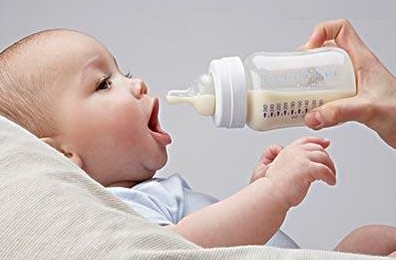 The recent botulinum incident in New Zealand's dairy products has caused many mothers to bow. Although this is only an incident, major milk powder manufacturers are also actively recalling the problem milk powder, but the impact of the incident has been enormous. On the one hand, there are frequent problems with milk powder. On the other hand, there is a huge market demand for baby milk powder. The promotion of breastfeeding is also being discussed. Many mothers choose breast milk substitutes - milk powder - in order to keep fit and refuse breastfeeding. Can milk powder really replace breast milk powder?
The recent botulinum incident in New Zealand's dairy products has caused many mothers to bow. Although this is only an incident, major milk powder manufacturers are also actively recalling the problem milk powder, but the impact of the incident has been enormous. On the one hand, there are frequent problems with milk powder. On the other hand, there is a huge market demand for baby milk powder. The promotion of breastfeeding is also being discussed. Many mothers choose breast milk substitutes - milk powder - in order to keep fit and refuse breastfeeding. Can milk powder really replace breast milk powder? The difference between breast milk and formula milk formula ingredients, the difference between the two kinds of nutrients are great. The three major nutrients in food are sugar (carbohydrate), fat, and protein. Breast milk differs from formula in three points.
1. Carbohydrates (carbohydrates)
Breast milk contains lactose, which is very easy to use, and oligosaccharides, which are very beneficial to intestinal development. It is good for the brain, nervous system, intestinal tract and calcium absorption of infants. The formula is glucose.
2. Fatty milk contains more unsaturated fatty acids such as DHA and ARA, which promote the development of the baby's nervous system, eyes, and immune function.
3. Proteins Breast milk contains high-value and absorbable proteins, ie, a reasonable proportion of whey protein and casein. The ratio of whey protein and casein contained in milk is 2:1, which cannot be achieved with formula milk. In addition, the absorption rate of minerals, vitamins, calcium, zinc, iron and other trace elements in milk is much higher than that of ordinary formula milk. Therefore, compositionally speaking, milk is superior to other formulas and dairy products.
From the process point of view, breast milk is in direct contact with infants, so that pollution problems in the brewing process can be avoided.
Benefits of Breastfeeding 1. The connection between the mother and the baby helps the mother and child feel harmonious.
2. It is good for mother's health. The process of breastfeeding itself, the mother can consume a lot of calories, is conducive to postpartum weight loss, body recovery. At the same time, it can prevent long-term diseases such as breast and ovarian tumors, which will help reduce the incidence.
3. Guarantee baby's healthy growth. For infants, there are potential unpredictable benefits for future growth and prevention of various diseases.
It is recommended to exclusively breastfeed for at least 4 months. After 4-5 months, as the baby's nutritional needs increase, it is necessary to add complementary foods to the baby from this stage, especially the intake of trace elements such as iron and zinc to ensure the baby's healthy growth. According to the UNICEF News Communique, the best method of infant feeding is exclusive breastfeeding within 6 months of birth, followed by breastfeeding, with the appropriate addition of a safe supplementary food until two or even two years of age.
⤠Under what circumstances breastfeeding is not available 1. The vast majority of women can breastfeed but have mothers with metabolic, kidney, heart, and infectious diseases, and have active hepatitis, or have Tuberculosis, etc. are not suitable for breastfeeding. In addition, if you have been ill in the past, the use of radioactive or inhibitory drugs in the treatment of cancer may not be suitable for breastfeeding during the course of the treatment, because the drug can enter the child through milk.
2. From the infant's point of view, if the baby has acquired a congenital metabolic disease, galactosemia, phenylketonuria can not feed mother's milk in this case, and special medical milk powder may be used.
Chewing Gum Or Gum,Chewing Gum,Sugarless Gum,Pk Chewing Gum
Soar Biotech Co.,Ltd , https://www.xylitgum.com